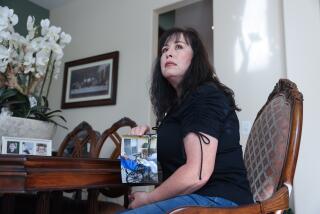Rules on Punitive Damages Toughened : Law: State high court says plaintiffs must show how much money the wrongdoer has. Ruling is latest to discourage such awards.
- Share via
SAN FRANCISCO — The state Supreme Court set up a new barrier Thursday for injury victims and other plaintiffs seeking punitive damages for flagrant misconduct, requiring them to show how much money the wrongdoer has.
In a 5-2 decision, the court said punitive damages--awarded for oppressive, fraudulent or malicious actions, and often the largest portion of big-money verdicts--require evidence of the defendant’s financial status, which the plaintiff must present.
That evidence is usually presented, but sometimes both sides will choose to leave it out when they think it will sway the jury against them. The court majority said the financial evidence is needed to let a reviewing court decide whether the damages are too high for their legal purposes--to punish and discourage wrongdoing.
The goal of punitive damages “is to deter, not to destroy,” said the opinion by Justice Marvin Baxter. “Absent evidence of a defendant’s financial condition, a punitive damages award can financially annihilate him.”
The ruling, which overturned $750,000 in punitive damages to a Los Angeles woman in a suit over birth defects, does not put dollar limits on damage awards. But the decision, sprinkled with comments showing little sympathy for punitive damages, continued the court’s pattern of discouraging, limiting and sometimes banning various types of damage claims.
Since conservative justices gained a majority in 1987, the court has prohibited a state civil rights agency from awarding damages for emotional distress or punitive damages for job discrimination; banned those damages in most wrongful-firing suits and many suits against insurers; cut back on suits for injuries caused by certain products, and restricted suits for emotional trauma caused by injuries to close relatives.
Punitive damages, awarded in addition to compensation for harm done, have been under attack for many years by business groups, who sponsored a 1987 California law toughening standards of proof for jury awards. The U.S. Supreme Court has refused to outlaw punitive damages but suggested this year that damage awards without adequate state controls might be unconstitutional.
Curtis Cole, lawyer for a physician who was sued in Thursday’s case, said the ruling suggests that “the court is going to follow the trend that I perceive the U.S. Supreme Court announcing, to more carefully scrutinize punitive damages awards.”
A lawyer for Lonetta Ree Adams, who filed the suit, did not return a telephone call.
Adams, a mental patient, sued View Heights Convalescent Hospital and Dr. Clifford Murakami for allowing her to become pregnant by another patient while hospitalized in 1979 and failing to provide her with birth control. She gave birth to a mentally retarded child.
She settled her claim with the hospital and went to trial against Murakami. Neither side offered evidence of Murakami’s financial condition. A jury damage award was modified by Superior Court Judge Leon Kaplan to $274,000 in compensation for harm and $750,000 in punitive damages.
Though financial data was necessary to impose punitive damages, Baxter said, it was “unfair and unnecessary” to require a defendant to offer that information to the jury because it might be seen as a concession that some punitive damage award was proper.


